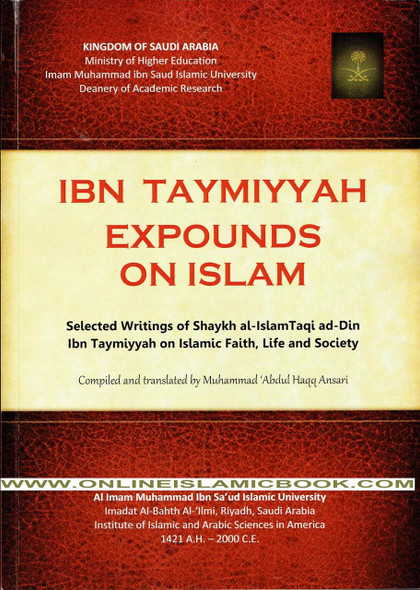Islam and Other Faiths By Isma'il R. Al Faruqi
ISBN: 9780860372769
Author: Isma'il R. Al Faruqi
Binding: Softcover
Pages: 400
Size: 5.8 x 8.3 inches
Publication Year: 2007
Description
About This Book:
Isma'il R. Al Faruqi's "Islam and Other Faiths" is a breakthrough examination of the link between Islam and numerous other religious traditions. A famous Islamic scholar, Dr. Al Faruqi, delves into the difficulties of interfaith discussion, covering the theological, philosophical, and practical implications of connecting with individuals of different faiths. This book is a thorough guide for people looking to comprehend Islamic thought concepts and how they connect with the beliefs of others, generating a greater awareness of religious diversity and promoting mutual understanding.
Theological Groundwork
The story begins by delving into Islam's theological basis in regard to other faiths. Dr. Al Faruqi investigates Islam's essential principles and their compatibility with, or divergence from, the concepts of other religious traditions, providing readers with a thorough understanding of Islamic theology.
Religious Philosophy in Comparison
This book looks into comparative religious philosophy, illuminating the conceptual foundations of Islam in comparison to other worldviews. Dr. Al Faruqi invites readers to engage in critical reflection on the philosophical components that influence religious beliefs, as well as to cultivate a greater understanding of other philosophical traditions.
Implications for Practice and Coexistence
"Islam and Other Faiths" investigates the practical ramifications of religious diversity and the possibility of peaceful cohabitation. Dr. Al Faruqi examines the ethical and practical elements of connecting with individuals of various religions, providing insights into creating understanding bridges and fostering healthy relationships.
Dialogue and Collaboration Among Faiths
This book offers a thorough assessment of interfaith conversation and collaboration. Dr. Al Faruqi highlights the concepts and practices that might help members of diverse faith communities have meaningful talks, increasing mutual tolerance and cooperation in tackling shared challenges.
















